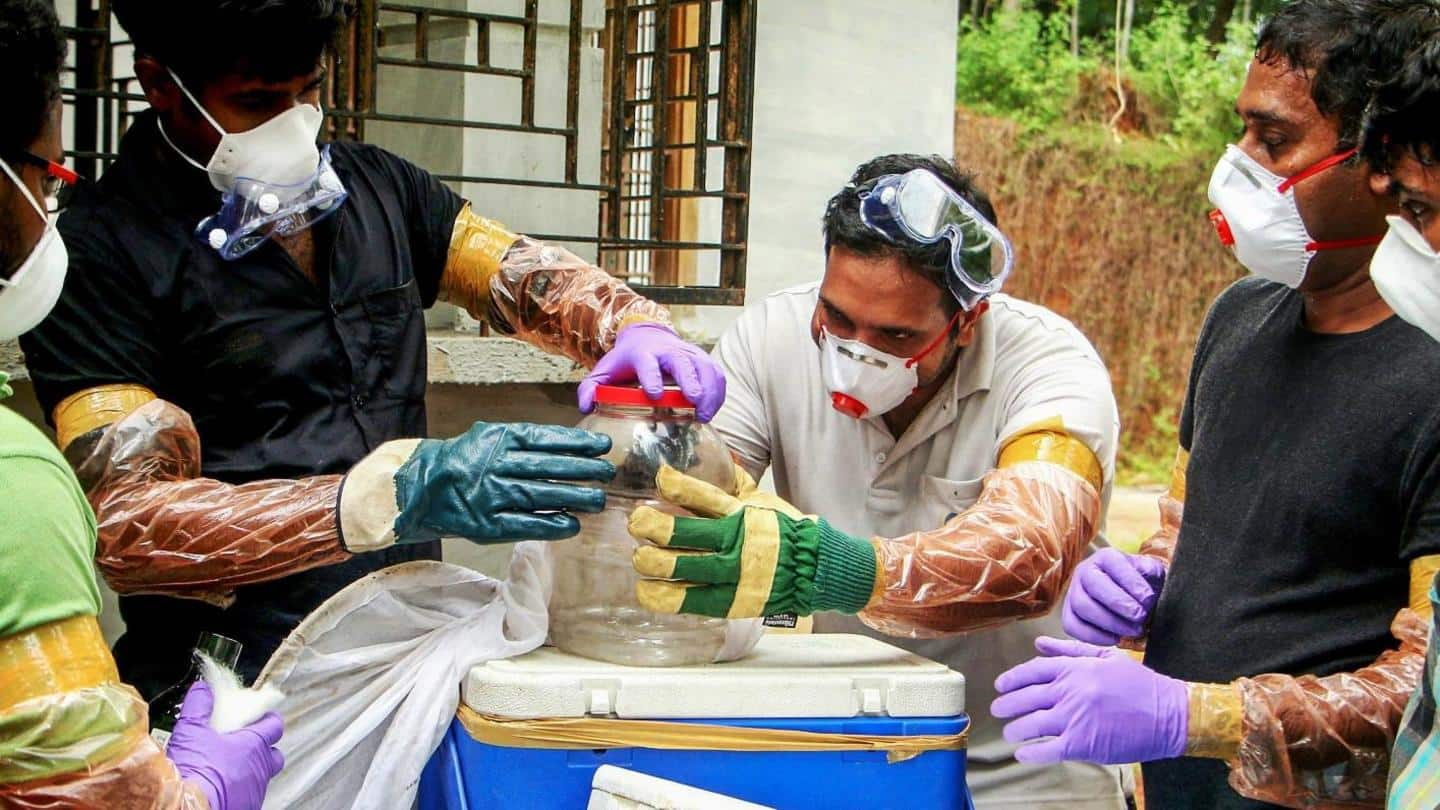
Strict vigilance, containment measures: How Kerala is fighting Nipah outbreak
What's the story
To contain the spread of the Nipah virus, the Kerala government is deploying strict vigilance and containment measures in the village where the first Nipah patient died on September 5.
The Nipah outbreak is adding to the woes of the Kerala government that had already been grappling with COVID-19.
Kerala had last witnessed an outbreak of Nipah—which has a fatality rate of 90%—in 2018.
Details
Strict containment, police vigilance in Pazhoor
In Pazhoor—the village a 12-year-old boy died of Nipah—the containment measures are so strict that no vehicle or people was there on road, except a few policemen and volunteers, The Indian Express reported.
Furthermore, policemen are manning all entries to Chathamangalam panchayat (under which the village falls) and villagers are forbidden from crossing the barricades put up by authorities, TIE reported.
Restrictions
Volunteers provide provisions; mobile patrolling ensures compliance
Since residents aren't allowed to cross barricades, they had to wait at the barriers for their provisions to be provided by volunteers from the few shops open on the other side.
Mobile patrolling teams also roam in the area to ensure compliance with the rules.
Three ambulances are stationed at the panchayat for ferrying patients to hospitals.
Movement is allowed for COVID-19 treatment.
Information
How is the Nipah outbreak situation in Chathamangalam?
Nipah infections are not very high in the Chathamangalam panchayat area. A total of 274 people are believed to have been exposed to the Nipah victim, or his family. Among them, 149 are health workers. Of the 94 who are symptomatic, 88 have tested negative.
Government
Health workers conducting door-to-door surveys
Meanwhile, health workers have been conducting door-to-door surveys to ascertain any cases of fever or unusual deaths this past week.
Health worker M Anju told TIE most houses in the locality have some kind of fruit tree on their premises.
"Fruit bats thrive in these trees...particularly guava...areca nuts are [also] raided by bats."
Notably, fruit bats are a reservoir of the Nipah virus.
Quote
Nipah outbreak taking toll on fruit sales
Given the concern surrounding fruit bats, a local fruit trader told TIE that fruit sales have come to a total halt following the outbreak. "Nobody is buying fruits...particularly locally grown bananas, rambutans, and pineapples...People fear these fruits are exposed to the fluids of fruit bats."
Residents
'Waiting for the day we can move about'
Locals said they woke up on September 5 to see all the roads to the village barricaded.
"We thought we had only COVID-19 to grapple with...But Nipah is different, people are scared," a resident said.
"Nobody knows how long we should remain indoors...Already COVID-19 restrictions have been in place..for nearly two weeks...Everyone is waiting for the day they can move about," another one lamented.
Nipah
What is Nipah virus?
Nipah virus (NiV), a zoonotic virus, was first detected in Malaysia in 1998.
It is transmitted to humans from animals such as bats and pigs.
While it has a high fatality rate of over 75%, there is no known treatment or vaccine.
After a person gets infected, it takes 5-14 days for symptoms to appear. Patients complain of fever, nausea, headaches, and fainting.